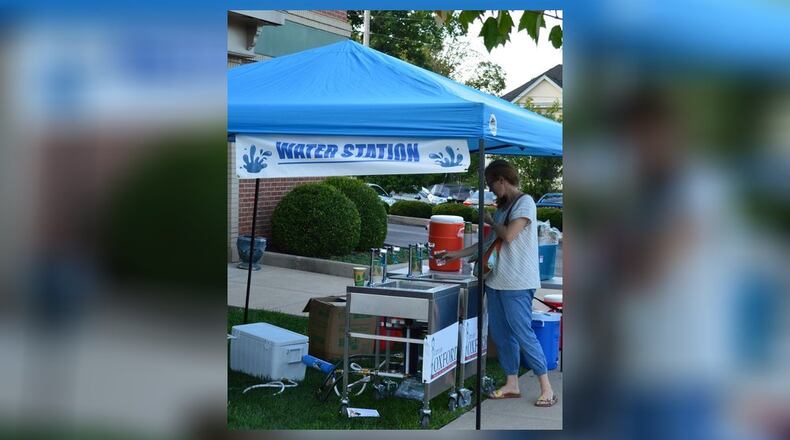So far, they have replaced 6,700 bottles of water, officials said.
Along with the purchase of the water stations, the city purchased compostable cups which can be used and placed in the food scrap collection bins which are taken away by GoZero.
John Buchholz, the city’s community outreach specialist, said the idea came from efforts to decrease the use of plastic bottles of water, which are becoming a major threat to marine life as well as landfills.
Buchholz coordinates the annual Community Picnic and said the effort to find an alternative to plastic bottles started there.
“We were thinking about how to replace the 4,000-plus bottles we use at the picnic. In past years, there was about 20 percent recycling of bottles, for a variety of reasons. We looked at options for how to deliver water,” he said. “We wanted a system adaptable to emergency delivery of potable water.”
Buchholz said the credit for the water stations sinks goes to Len Wagner, the wastewater collection manager in the service department, who had “knowledge and interest” in the idea and found a company in Canada which provided what they were seeking. The city purchased two of them, with two sinks each and filters to use with them.
They hook up to the water system with a garden hose, and the water can be run through a cooling system for those hot summertime events.
The water stations arrived in July and were immediately put into use at the Music Festival concerts, intended as practice for the Community Picnic at the end of August. That event proved their usefulness.
“We get a lot of people, usually 3,500. We also bought Igloo water coolers to supplement the water stations,” Buchholz said, adding they are still deciding what to do about the concert series next summer. “We had it up there but sponsors were giving away bottles (of water). We felt our way with it a little bit. Community organizations requested it.”
The water stations were set up at the Back to School Bash at the Aquatic Center in August, where their use saved 500 to 600 bottles of water and were used again at the Kramer Carnival, which reduced use of another 400 to 500 bottles of water.
The sinks do require a drain, so they do not work for indoor events.
He said the use of the water stations is linked to other conservation efforts such as the food scrap composting and recycling.
Allison South, a Miami student who is president of a campus organization called Eco Reps, volunteered at the Kramer Carnival helping people place items in the correct bins and explaining their use—composting, recycling or trash.
“I was super excited when John started doing this. The water station was a great start to save bottles. I really like that,” she said. “He started now with composting. It’s important to get in the compostable materials. It’s important to educate Oxford citizens and Miami students.”
About the Author
